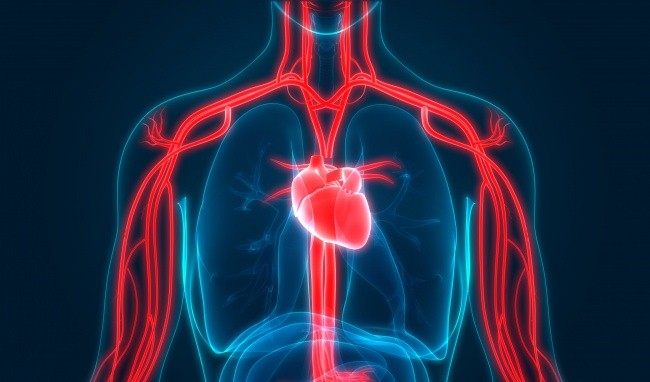11 Benefits Of Ginkgo Biloba
OVERVIEW
Ginkgo biloba is a tree native to China that has been grown for thousands of years for a variety of uses. Because it’s the only surviving member of an ancient order of plants, it’s sometimes referred to as a living fossil.
While its leaves and seeds are often used in traditional Chinese medicine, modern research primarily focuses on ginkgo extract, which is made from the leaves.
Ginkgo supplements are associated with several health claims and uses, most of which focus on brain function and blood circulation.

HERE ARE 11 BENEFITS OF GINKGO BILOBA
Contains Powerful Antioxidants
Ginkgo’s antioxidant content may be the reason behind many of its health claims (1, 2).
Ginkgo contains high levels of flavonoids and terpenoids, which are compounds known for their strong antioxidant effects (3, 4).
Antioxidants combat or neutralize the damaging effects of free radicals.
Free radicals are highly reactive particles that are produced in the body during normal metabolic functions, such as converting food to energy or detoxification.
Yet, they also have the potential to damage healthy tissues, contributing to accelerated aging and disease development.
Research on ginkgo’s antioxidant effects is promising. However, it remains unclear exactly how it works and how effective it may be at treating specific diseases.
SUMMARY: Ginkgo contains potent antioxidants, which fight the damaging effects of free radicals and may be behind most of its health claims.
Can Help Fight Inflammation
Inflammation is part of the body’s natural response to injury or invasion by a foreign substance.
In the inflammatory response, various components of the immune system are recruited to fight against the foreign invader or heal the injured area.
Some chronic diseases trigger an inflammatory response even when there is no illness or injury present. Over time, this excessive inflammation can cause permanent damage to the body’s tissues and DNA.
Years of animal and test-tube research shows that ginkgo extract can reduce markers of inflammation in both human and animal cells in a variety of disease states (2, 5, 6).
Some specific conditions in which ginkgo extract has shown to reduce inflammation include:
- Arthritis
- Irritable bowel disease (IBD)
- Cancer
- Heart disease
- Stroke
While this data is encouraging, human studies are needed before drawing concrete conclusions about ginkgo’s role in treating these complex diseases.
SUMMARY: Ginkgo has the ability to reduce inflammation caused by various conditions. This may be one of the reasons it has such broad health applications.
Improves Circulation and Heart Health
In traditional Chinese medicine, ginkgo seeds were used to open “channels” of energy to different organ systems, including the kidneys, liver, brain and lungs.
Ginkgo’s apparent ability to increase blood flow to various parts of the body may be the origin of many of its supposed benefits.
One study in people with heart disease who supplemented with ginkgo revealed an immediate increase in blood flow to multiple parts of the body. This was attributed to a 12% increase in levels of circulating nitric oxide, a compound responsible for dilating blood vessels (7).
Similarly, another study showed the same effect in older adults who were treated with ginkgo extract (8).
Additional research also points to ginkgo’s protective effects on heart health, brain health and stroke prevention. There are multiple potential explanations for this, one of which may be the anti-inflammatory compounds present in the plant (9, 10, 11).
More research is needed to fully understand how ginkgo affects circulation and heart and brain health.

SUMMARY: Ginkgo can increase blood flow by promoting the dilation of blood vessels. This may have applications for the treatment of diseases related to poor circulation.
Reduces Symptoms of Psychiatric Disorders and Dementia
Ginkgo has been repeatedly evaluated for its ability to reduce anxiety, stress and other symptoms associated with Alzheimer’s disease and cognitive decline associated with aging.
Some studies show a marked reduction in the rate of cognitive decline in people with dementia using ginkgo, but others fail to replicate this result.
A review of 21 studies revealed that when used in conjunction with conventional medicine, ginkgo extract may increase functional capabilities in those with mild Alzheimer’s (12).
Another review evaluated four studies and found a significant reduction in a spectrum of symptoms associated with dementia when ginkgo was used for 22–24 weeks (13).
These positive results could be related to the role that ginkgo may play in improving blood flow to the brain, especially as it relates to vascular types of dementia.
Overall, it’s too soon to definitively state or refute ginkgo’s role in treating dementia, but recent research is beginning to make this piece clearer.
SUMMARY: It cannot be concluded that ginkgo treats Alzheimer’s and other forms of dementia, but it might help in some cases. The chances of it helping seem to increase when used alongside conventional treatment.
Improves Brain Function and Well-Being
There is some speculation that ginkgo may enhance brain function in healthy individuals.
A handful of small studies support the notion that supplementing with ginkgo may increase mental performance and perceived well-being (14, 15).
Results from studies like these have given rise to claims linking ginkgo to improved memory, focus and attention span.

SUMMARY: Some research shows that ginkgo may improve mental performance in healthy people.
Can Reduce Anxiety
Some research indicates that supplementing with ginkgo may reduce symptoms of anxiety.
A handful of animal studies have observed reductions in anxiety symptoms that may be attributed to the antioxidant content of ginkgo (16, 17).
In one study, 170 people with generalized anxiety were treated with either 240 mg or 480 mg of ginkgo or a placebo. The group treated with the highest dose of ginkgo reported a 45% greater reduction in symptoms of anxiety, compared to the placebo group (18).
While supplementing with ginkgo may reduce anxiety, it’s still too early to draw any definitive conclusions from the available research.
SUMMARY: Some research shows that ginkgo may help treat anxiety, though this is likely due to its antioxidant content.
Can Treat Depression
A review of animal studies suggests that supplementing with ginkgo may help treat symptoms of depression (17).
Mice who received ginkgo before an unavoidable stressful situation were less emotionally affected by the stress than the group that did not receive the supplement.
The study indicated that this effect was related to ginkgo’s anti-inflammatory properties, which improve the body’s ability to cope when stress hormone levels are high.
Nonetheless, depression is a complex condition that may have a variety of root causes.
More research is needed to better understand the relationship between ginkgo and how it may affect depression in humans.
SUMMARY: Ginkgo’s anti-inflammatory effects give it the potential to treat depression. More research is needed.
Can Support Vision and Eye Health
Very little research has investigated how ginkgo relates to vision and eye health. However, early results are promising.
One review showed that people with glaucoma who supplemented with ginkgo experienced increased blood flow to the eye, but this didn’t necessarily translate to better vision (19).
Another review of two studies evaluated the effect of ginkgo extract on the progression of age-related macular degeneration. Some participants reported an improvement in vision, but this wasn’t statistically significant across the board (20).
Many of these positive results seem to be related to increased blood flow to the eye.
It’s unclear if ginkgo would improve vision in those who don’t already suffer from vision impairment.
More research is needed to determine whether ginkgo can increase vision capacity or slow the progression of degenerative eye disease.

SUMMARY: Some early research shows that supplementing with ginkgo may increase blood flow to the eyes but not necessarily improve vision. More research is needed.
Can Treat Headaches and Migraines
In traditional Chinese medicine, ginkgo is a very popular treatment for headaches and migraines (21).
Very little research is available on ginkgo’s ability to treat headaches. However, depending on the root cause of the headache, it may help.
For example, it’s well known that ginkgo has anti-inflammatory and antioxidant effects. If a headache or migraine is caused by excessive stress, ginkgo may be useful.
SUMMARY: Because of its ability to increase blood flow and reduce inflammation, ginkgo may be an effective treatment for some types of headaches.
Can Improve Asthma and COPD Symptoms
Some research indicates that ginkgo may improve symptoms of asthma and other inflammatory respiratory diseases like COPD.
This is attributed to the anti-inflammatory compounds in ginkgo, which may allow for reduced inflammation of the airways and increased lung capacity (22).
One study in 75 people evaluated the use of ginkgo extract alongside glucocorticosteroid medication therapy for managing asthma symptoms (23).
The levels of inflammatory compounds in the saliva of those who received ginkgo were significantly lower than those who received traditional medication alone.
Another study in 100 people evaluated the use of a mixture of Chinese herbs, which included ginkgo, for treating COPD symptoms.
Those who used the herbal formula reported a considerable reduction in cough and bronchitis at a three-month follow-up, compared to the control group (24).
At this point, it cannot be determined if this improvement can be attributed to ginkgo alone, or if it was a synergistic effect of the other herbs used in the treatment group formula.
While these results are encouraging, more research on this specific application of ginkgo is needed.
SUMMARY: Ginkgo may treat symptoms associated with respiratory diseases because of its anti-inflammatory effects. More research is needed.
Reduces PMS Symptoms
Preliminary research indicates that ginkgo may help treat both the physical and psychological symptoms of premenstrual syndrome (PMS).
One study in 85 college students revealed a 23% reduction in reported PMS symptoms when consuming ginkgo (25).
Interestingly, the placebo group in this study also experienced a slight reduction in PMS symptoms, though it was much lower at 8.8%.
Further research is needed to better understand the cause and effect relationship between ginkgo and PMS symptoms.
SUMMARY: Ginkgo may help reduce PMS symptoms, but more research is needed.
Written by Ansley Hill, RD, LD, update on May 29, 2018
Reference source
https://www.healthline.com/nutrition/ginkgo-biloba-benefits
- Bridi F. P. Crossetti V. M. Steffen A. T. Henriques, “The antioxidant activity of standardized extract of Ginkgo biloba (EGb 761) in rats”
https://pubmed.ncbi.nlm.nih.gov/11507743/
- Wei Zuo, Feng Yan, Bo Zhang, Jiantao Li, Dan Mei, “Advances in the Studies of Ginkgo Biloba Leaves Extract on Aging-Related Diseases”
https://www.ncbi.nlm.nih.gov/pmc/articles/PMC5758353/
- Pier-Giorgio Pietta, “Flavonoids as Antioxidants”
https://www.chem.uwec.edu/Chem491_W01/Pharmacognosy%20491/flavonoid.pdf
- J Grassmann, “Terpenoids as plant antioxidants”
https://pubmed.ncbi.nlm.nih.gov/16492481/
- Venkata S. Kotakadi,† Yu Jin,† Anne B. Hofseth, Lei Ying, Xiangli Cui, Suresh Volate, Alexander Chumanevich, Patricia A. Wood, Robert L. Price, Anna McNeal, Udai P. Singh, Narendra P. Singh, Mitzi Nagarkatti, Prakash S. Nagarkatti, Lydia E. Matesic, Karine Auclair, Michael J. Wargovich, and Lorne J. Hofseth, “Ginkgo biloba extract EGb 761 has anti-inflammatory properties and ameliorates colitis in mice by driving effector T cell apoptosis”
https://www.ncbi.nlm.nih.gov/pmc/articles/PMC2527648/
- Ying Ju Chen, Keh Sung Tsai, Chen Yuan Chiu, Ting Hua Yang, Tzu Hung Lin, Wen Mei Fu, Cheng Feng Chen, Rong Sen Yang, Shing Hwa Liu, “EGb761 inhibits inflammatory responses in human chondrocytes and shows chondroprotection in osteoarthritic rat knee”,
https://pubmed.ncbi.nlm.nih.gov/23483610/
- Yu-Zhou Wu, Shu-Qin Li, Xiu-Guang Zu, Jun Du, Feng-Fei Wang, “Ginkgo biloba extract improves coronary artery circulation in patients with coronary artery disease: contribution of plasma nitric oxide and endothelin-1”
https://pubmed.ncbi.nlm.nih.gov/18446847/
- Yuzhou Wu, Shuqin Li, Wei Cui, Xiuguang Zu, Jun Du, Fengfei Wang, “Ginkgo biloba extract improves coronary blood flow in healthy elderly adults: role of endothelium-dependent vasodilation”
https://pubmed.ncbi.nlm.nih.gov/18258419/
- Yinfeng Yang, Yan Li, Jinghui Wang, Ke Sun, Weiyang Tao, Zhenzhong Wang, Wei Xiao, Yanqiu Pan, Shuwei Zhang, Yonghua Wang, “Systematic Investigation of Ginkgo Biloba Leaves for Treating Cardio-cerebrovascular Diseases in an Animal Model”
https://pubmed.ncbi.nlm.nih.gov/28333443/
- Seyed Mohammad Nabavi, Solomon Habtemariam, Maria Daglia, Nady Braidy, Monica Rosa Loizzo, Rosa Tundis, Seyed Fazel Nabavi, “Neuroprotective Effects of Ginkgolide B Against Ischemic Stroke: A Review of Current Literature”
https://pubmed.ncbi.nlm.nih.gov/26059355/
- Kevin M. Nash1 and Zahoor A. Shah, “Current Perspectives on the Beneficial Role of Ginkgo biloba in Neurological and Cerebrovascular Disorders”
https://www.ncbi.nlm.nih.gov/pmc/articles/PMC4640423/
- Guoyan Yang, Yuyi Wang, Jin Sun, Kang Zhang, Jianping Liu, “Ginkgo Biloba for Mild Cognitive Impairment and Alzheimer’s Disease: A Systematic Review and Meta-Analysis of Randomized Controlled Trials”
https://pubmed.ncbi.nlm.nih.gov/26268332/
- Egemen Savaskan, Heiko Mueller, Robert Hoerr, Armin von Gunten, Serge Gauthier , “Treatment effects of Ginkgo biloba extract EGb 761® on the spectrum of behavioral and psychological symptoms of dementia: meta-analysis of randomized controlled trials”
https://pubmed.ncbi.nlm.nih.gov/28931444/
- Joseph A Mix, W David Crews Jr, “A double-blind, placebo-controlled, randomized trial of Ginkgo biloba extract EGb 761 in a sample of cognitively intact older adults: neuropsychological findings”
https://pubmed.ncbi.nlm.nih.gov/12404671/
- Alarcos Cieza, Petra Maier, Ernst Pöppel, “Effects of Ginkgo biloba on mental functioning in healthy volunteers”
https://pubmed.ncbi.nlm.nih.gov/14602503/
- Karen Savage, Joseph Firth, Con Stough, Jerome Sarris, “GABA-modulating phytomedicines for anxiety: A systematic review of preclinical and clinical evidence”
https://pubmed.ncbi.nlm.nih.gov/29168225/
- Pedro Montes, Elizabeth Ruiz-Sanchez, Carolina Rojas, Patricia Rojas, “Ginkgo biloba Extract 761: A Review of Basic Studies and Potential Clinical Use in Psychiatric Disorders”
https://pubmed.ncbi.nlm.nih.gov/25642989/
- H Woelk, K H Arnoldt, M Kieser, R Hoerr, “Ginkgo biloba special extract EGb 761 in generalized anxiety disorder and adjustment disorder with anxious mood: a randomized, double-blind, placebo-controlled trial”
https://pubmed.ncbi.nlm.nih.gov/16808927/
- Jessica Minjy Kang , Shan Lin, “Ginkgo biloba and its potential role in glaucoma”
https://pubmed.ncbi.nlm.nih.gov/29206653/
- Jennifer R Evans, “Ginkgo biloba extract for age-related macular degeneration”
https://pubmed.ncbi.nlm.nih.gov/23440785/
- Yu-Yun Chang , Yueh-Ting Tsai , Jung-Nien Lai , Chia-Hao Yeh, Shun-Ku Lin , “The traditional Chinese medicine prescription patterns for migraine patients in Taiwan: a population-based study”
https://pubmed.ncbi.nlm.nih.gov/24389028/
- Xiao Chu, Xinxin Ci, Jiakang He, Miaomiao Wei, Xiaofeng Yang, Qingjun Cao, Hongyu Li, Shuang Guan, Yanhong Deng, Daxin Pang, Xuming Deng, “A novel anti-inflammatory role for ginkgolide B in asthma via inhibition of the ERK/MAPK signaling pathway”
https://pubmed.ncbi.nlm.nih.gov/21900866/
- Yijun Tang, Yongjian Xu, Shengdao Xiong, Wang Ni, Shixin Chen, Baoan Gao, Tao Ye, Yong Cao, Chunling Du, “The effect of Ginkgo Biloba extract on the expression of PKCalpha in the inflammatory cells and the level of IL-5 in induced sputum of asthmatic patients”
https://pubmed.ncbi.nlm.nih.gov/17828490/
- Yong Cai, Rong Shi, Huijiang Song, Meili Shang, Tian Shen, Mina Shariff, Kenneth Kami, Pingping Gu, Tuong Nguyen, and Jianyu Rao, “Effects of Lung Support Formula on respiratory symptoms among older adults: results of a three-month follow-up study in Shanghai, China”
https://www.ncbi.nlm.nih.gov/pmc/articles/PMC3698174/
- Giti Ozgoli, Elham Alsadat Selselei, Faraz Mojab, Hamid Alavi Majd, “A randomized, placebo-controlled trial of Ginkgo biloba L. in treatment of premenstrual syndrome”
https://pubmed.ncbi.nlm.nih.gov/19678774

